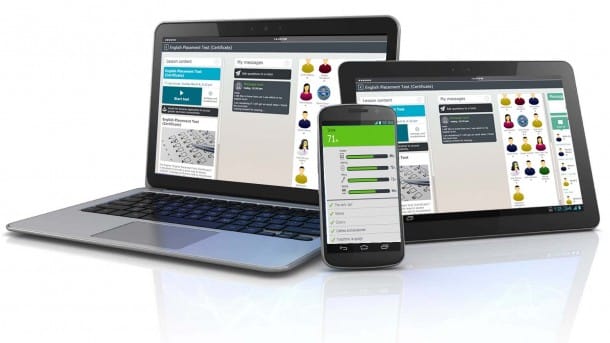The past decade has seen a huge number of technological advances. Many of these advances have had a big impact on the education sector. The advent and growth of digital platforms have meant that students are now able to learn in new increasingly convenient ways.
One way that’s had a particularly big impact on the education community is the growth of digital learning platforms and learning management systems (LMS).
These online learning spaces, typically referred to as the ‘educational platforms’ or ‘virtual campuses’ open up all kinds of opportunities, both for students and their tutors.
Below, we’ve focused on six ways that hosting a virtual campus can have for the student community.

#1. A virtual campus promotes greater communication between classmates
Hosting a virtual campus system is an excellent way to encourage students to work together and talk about what they’re learning. Most of us keep in touch with friends and family members on a daily basis using technology: a learning management system (LMS) with a virtual classroom element can help to build a strong student community in the same way.
#2. A virtual campus allows students to take control of their own learning
Almost all of the media we consume is now on demand. The benefits of this are clear: we can access the exact news, film or television programme the very moment we want it. This same paradigm is now shifting into education. Students want to be able to be more in control of what they’re learning and when they’re learning it. Providing a digital learning space via a learning management system (LMS) and virtual classroom gives them the opportunity to work through material at their own rate, revisiting or skipping whatever they feel is appropriate.
#3. A virtual campus removes geographical boundaries
Traditionally students have only been able to apply to the training providers and language schools that they could easily travel to. Now that more and more institutions are offering online courses via a virtual classroom model, this boundary is breaking down. This is a huge benefit to learners as it means they no longer have to limit their search for training opportunities to their local vicinity. They now have the option to shop around and choose a language school that offers the language courses, quality of tutors and type of learning that they feel will offer them the most value.
#4. A virtual campus is more accessible for busy learners
One of the key things that puts potential students off from enrolling in a language school is the time commitment. Huge numbers of would-be learners choose not to sign up to a course as they are unable to get time away from work or family commitments in order to attend. A educational platform can enable these people to complete course materials later on in the evening, once work is finished for the day and the children are in bed. This type of learning format can also allow students to enrol on more than one course at a time without worrying about schedule clashes.
#5. A virtual campus makes it easy for students to ask for help
Some people assume that leaning management systems (LMS) make the tutors more anonymous to the student community. This is actually not the case at all! An educational platform gives students direct access to their tutors through email, messaging, telephone, video, chat and the virtual classroom. This makes it really easy for students to ask for help whenever they need it. The added benefit of this is that students often feel far more comfortable asking for one-on-one assistance in this way than they would sticking their hand up to ask publicly in a classroom situation.
#6. A virtual campus gives students the opportunity to practice whenever they like
One of the most important aspects of successfully learning a language is regular speaking and listening practice. Traditional courses often offer little in the way of quality practice outside of scheduled classroom hours. A digital learning platform changes this by allowing students to log in and converse with their fellow learners whenever they want. Not only does this mean that students are likely to be far more successful in their learning goals, it also helps them to easily feel part of the student community. They will have the opportunity to log into a virtual classroom to see and chat with different students world wide whenever they choose, or the chance to have a live conversation class with a tutor.
It’s clear that there are many, many benefits to using a virtual campus. By investing in these digital spaces by installing a learning management system (LMS), language schools can enhance the experience of their student community by making it easier for them to access a virtual classroom, core course material, additional learning resources, tutor assistance and peer support.
To find out more about how to roll out a virtual campus at your language school, take a look at the course facilities we offer at Dexway, that combines the benefits of face to face training with the advantages of online training. You may also like to take a look at our new Voluxion learning management system (LMS), designed specially for language schools.
You may also like:

